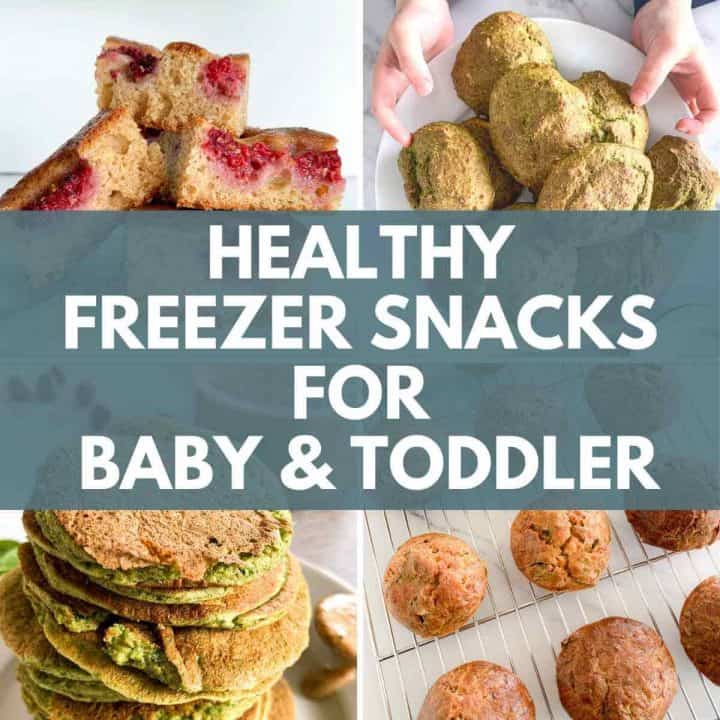
Christmas is definitely one of our favorite times of the year. Especially as a chance to gather family and friends around tables to eat, drink, and generally indulge.
But with such an emphasis on food, it can also end up being a time for family members to hand a plate of cookies to your child 30 mins before dinner (literally today).
And as much as I love this time of year, it always seems to serve as an opportunity for other people to tell me what my son should be eating or playing with, or just generally offering their unsolicited constructive parenting advice.
All that can make mealtimes stressful when you are trying to manage a tiny human. And when that happens, it's helpful to have a few things to remember, and a few things to do, to ease the mind and stop nutrition from becoming a source of stress.
1. Only You Are in Charge of Your Child's Nutrition
Whether or not they have children of their own, for some reason the moment you become a parent, everyone else acts like they are the world authority on good parenting. And no matter how old your children are, you've no doubt had to deal with people's opinions on what you're doing. Don't let them eat that... or let them eat everything - it's only once a year! Your kids are out of control... or you're too strict... The only thing you can be sure of is that you can't please everyone. And you absolutely shouldn't have to.
So in preparation for our Christmas dinners, we remind ourselves of rule number 1: no one else is in charge of your kids' nutrition except you.
That means you do not owe anyone any explanations as to what you are doing or why. No defense necessary - only you are in charge.
2. Communicate with Your Relatives in Advance
You probably already know who will be at the Christmas table and who is most likely to cause trouble for you. So it might help to let them know your expectations in advance.
They might have had children a long time ago when nutritional recommendations were very different, or they may not have any at all. Either way, it can take the pressure off by letting them know in advance that you don't want to discuss your child's nutrition in front of them when you're sitting around the table together.
Children know which side to pick in a battle, and it's usually whichever side is most convenient to them at that moment. Avoiding having those conversations at the table can prevent plenty of unnecessary stress.
Ultimately, especially with pre-verbal children, it can make all the difference for them to know that nothing changes during the holidays (if you don't want anything to change) for them and the way they eat at home is how they eat at Christmas too.
3. Make Sure Your Child Is Not Too Hungry or Too Full Before Mealtime
Check in advance when lunch/dinner will be served and plan the rest of your child’s meals accordingly.
The last thing you want is a child that's starving when you still have an hour to go before you eat. Or one that's full when you actually come to sit down, and totally uninterested in being at the table.
With a good idea of timing, you can plan when they should be given milk/formula or a snack to keep them on track.
4. Set the Stage
Bring your regular utensils, bib, and put them in a high chair so the meal feels familiar. Regardless of all the extra people and festivities going on, they should still feel like it's mealtime.
Christmas meals can be overwhelming to a baby that's only experienced them once or twice before (or never). So it might be distracting at first and take some time before they are eating as normal.
And even if they don’t want to eat anything you have served (see below), presenting the familiar features of mealtime will keep them at the table for longer without getting frustrated.
5. Offer Familiar Food
The first year of solids is a constant process of introducing new foods. As any parent knows, this can be very hit or miss - some things hit the spot while others just hit the floor.
So during Christmas meals, amongst all the new flavors, make sure you have something familiar for your child as well.
Especially for picky eaters, that way you'll at least have something on the plate that your child will eat.
6. Offer Same Food that You're Eating
Children will always look to imitate adults, so if they see what everyone else is eating, they will probably want to try it.
And if your child is over 1-year-old, chances are that they can eat everything that you can.
So amongst the familiar foods that you offer your child, grab whatever else is on the table and cut up a portion for them too.
If you have a child younger than 1 who is baby-led weaned or already comfortable with finger food, you can easily adjust the foods the adults are eating for them as well (ideally with no salt, sugar, or cow’s milk, and definitely no honey).
Last year when Max was 9-months-old, we set some (unsalted) chicken soup aside for him and prepared a 9-month-old version of the rest of the food for him so he could share the whole meal with us.
7. Bring Your “if all else fails" Food
Most children have that one thing they will always eat. For Max (at 21-months-old) that's peanut butter on toast, and for Andrej (at 8-months-old) it's banana.
If the Christmas chaos is too much for them and they don't eat a thing, avoiding a hunger-based meltdown is as easy as having this stuff available.
Whatever it is for you, make sure you have something as a backup if all else fails!
8. Let Go of Stress
Best laid plans of mice and (wo)men... sometimes no matter what you do in advance, nothing goes the way you hoped. And if that happens, all you can do is let go of the stress.
This is only a few days out of the year and I hope you spend them having quality time with family and friends, eating, drinking, laughing, playing games generally being grateful to have them in your life.
Food is important but it’s not the most important thing at this time of year.





Comments
No Comments